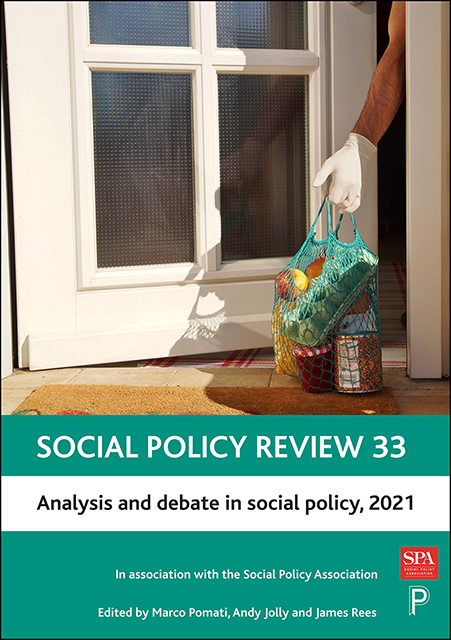10 - All of the same type? The use of fears of ‘welfare tourism’ to limit the access of EU migrants to social benefits in the UK and Germany
Published online by Cambridge University Press: 14 April 2023
Summary
Introduction
In the run-up and aftermath of the 2004 EU enlargement, concerns of welfare tourism emerged: the idea that Eastern European migrants would move to Western European countries to access social benefits rather than to work (Sinn, 2002: 105; Kvist, 2004: 303). To avoid this, Directive 2004/38 allowed member states to exclude economically inactive citizens from social assistance benefits. However, this regulation did not end concerns of welfare tourism. It contained ambiguous terms such as ‘sufficient resources’ or ‘unreasonable burden’, which left member states’ much room for interpretation (Blauberger and Schmidt, 2014: 2–3).
Besides, some provisions of Directive 2004/38 contradicted other EU regulations and the case law of the European Court of Justice (ECJ), therefore resulting in ‘significant legal uncertainty’ (Blauberger and Schmidt, 2014: 2). The literature has also pointed out that other exogenous factors, such as the Eurozone crisis (2008–14) and/or the refugee crisis (2015), have also fostered fears of welfare tourism, owing to financial pressure on member states or the increase of antiimmigration views (Alexandre-Collier, 2015; Lafleur and Mescoli, 2018). In addition, some studies have concluded that the response of national governments to these fears of welfare tourism has been to restrict EU migrants’ access to social assistance benefits (Fernandes, 2016: Roos, 2016).
However, we still do not know much about either the specific characteristics of fears of welfare tourism in national contexts or the social policy reforms undertaken to limit EU migrant's access to social help. This chapter addresses these questions by analysing the interplay between exogenous and endogenous factors to explain the differences in fears of welfare tourism in two countries, the UK and Germany, from 2004 to 2020. Both countries are traditional receivers of EU movers (Fernandes, 2016: 8), and experienced the emergence of fears of welfare tourism after EU enlargement (Bruzelius et al, 2014; Luhman, 2017). In addition, in both countries, the reforms adopted to implement Directive 2004/38 have led to litigations that have required the involvement of the ECJ. Theoretically, this chapter shows that although fears of welfare tourism originated in both countries owing to exogenous factors, the endurance of this phenomenon is better explained by the interaction of external and domestic factors and dynamics. Empirically, the chapter demonstrates that despite sharing some characteristics, concerns of welfare tourism were not of the same type in the UK and Germany, and this led to the implementation of different social policy reforms.
- Type
- Chapter
- Information
- Social Policy Review 33Analysis and Debate in Social Policy, 2021, pp. 203 - 222Publisher: Bristol University PressPrint publication year: 2021



